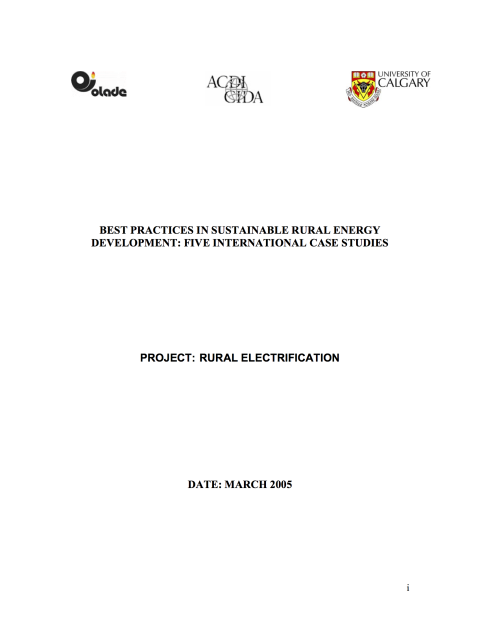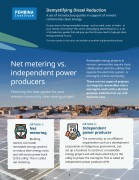Providing access to clean energy to rural community in developing countries is a challenging task. Clean energy technologies tend to have a higher first cost than traditional energy sources such as wood burning fires and kerosene lamps. There is a lack of the skills needed at the local level to manufacture, install and maintain clean energy products. On the other hand, many communities already have the community spirit, micro-finance services, and community-based organizations and NGOs that can be used to establish an infrastructure to provide clean energy services.
This report, prepared by The Pembina Institute for the Latin American and Caribbean Energy Organization (OLADE), describes five rural communities in Africa and Asia where rural energy programs have been successfully established. These projects have not only met locally defined energy needs and provided income generation, in many cases they have also improved women's access to resources, resulting in improved status and capacity. The report identifies five key features that ensured the success of projects and recommends how these could be encouraged in the LAC Region.








